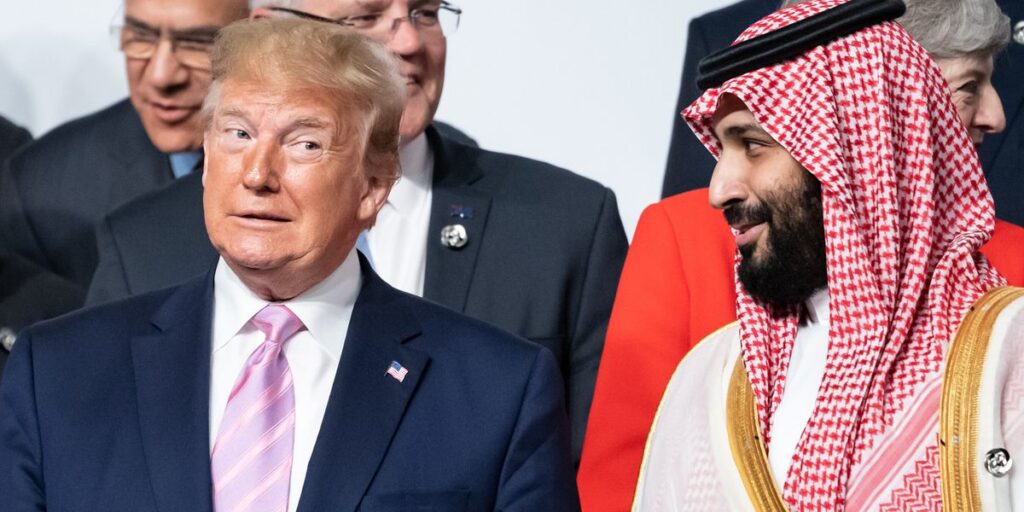In an exclusive interview with Al Arabiya English, owned by the Saudi government, former President Donald Trump expressed his vision for establishing peace in the Middle East should he be re-elected. The interview, conducted by Nadia Bilbassy-Charters, focused heavily on Trump’s foreign policy intentions, particularly concerning the Middle East, as both he and Vice President Kamala Harris seek to garner support from Arab American voters ahead of the upcoming election. Trump reiterated his stance that the deadly attack by Hamas on Israel in October 2023 would not have transpired had he still been in office, emphasizing his robust friendship with Israeli Prime Minister Benjamin Netanyahu, even amidst accusations of his previous antisemitic remarks.
Trump pointed out the devastation resulting from the conflict, implicating that his presence in the White House could have prevented the subsequent loss of life and destruction in various regions, including Gaza and Lebanon. Despite the escalating civilian casualties reported, he avoided directly answering whether he perceived Israel’s actions as a “tolerable price” for the Hamas attacks. His earlier remarks included suggesting that Israel ought to decisively address the “problem” in Gaza, and he has a history of overturning traditional U.S. policies by recognizing Israeli sovereignty over the Golan Heights, a disputed area under international law since its capture from Syria in 1967.
The backdrop of this interview includes ongoing efforts by the Saudi government to normalize relations with Israel, an initiative that gained momentum during Trump’s presidency under the Abraham Accords. These accords were aimed at fostering diplomatic ties but notably did not address Palestinian statehood, an issue that has remained central to regional conflicts. Current President Joe Biden had been facilitating negotiations towards this end, yet talks were recently halted as the Saudis sought assurances regarding enhanced Palestinian rights in light of Israel’s military actions in Gaza.
During the interview, Trump signaled that he would prioritize the expansion of the Abraham Accords should he return to the presidency. His admiration for Crown Prince Mohammed bin Salman was evident as he characterized him as a “visionary” leader. This praise comes at a time when Trump’s family, specifically his son-in-law Jared Kushner, has been solidifying business endeavors in Saudi Arabia—a tactic that has drawn scrutiny as Kushner’s private equity firm was granted a massive investment of $2 billion from the Saudi sovereign wealth fund, despite dealing with significant financial losses.
The timing and platform of Trump’s interview mark a noticeable shift from his usual media strategy, given that his campaign has actively avoided major U.S. media outlets recently, opting instead for exclusive engagements like the one with Al Arabiya. This avoidance is particularly unusual as the election approaches, and an aide attributed the decision to the former president’s feelings of exhaustion at the age of 78. Politicians often navigate complex media landscapes to engage specific audiences, and Trump’s choice to address the Saudi outlet suggests a targeted approach towards influence in the Middle Eastern geopolitical sphere, as well as an attempt to reconnect with Arab American voters.
In conclusion, Trump’s interview with Al Arabiya exemplifies a calculated strategy aimed at reaffirming his foreign policy acumen while courting Arab American electorates amidst a backdrop of burgeoning business interests in Saudi Arabia. By championing the Abraham Accords and presenting himself as a peace-bringer, Trump is seeking to differentiate his foreign policy approach from that of the current administration. This move not only reflects his ongoing ties and admiration for key Middle Eastern leaders but also highlights the intersections between political ambition and personal business interests that continue to define his public persona and electoral strategies.

